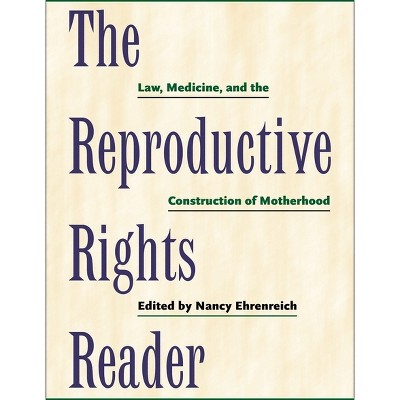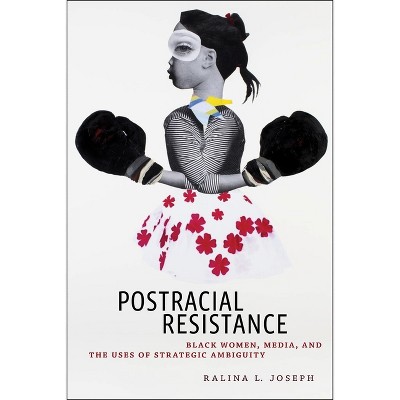Sponsored

Critical Dreaming - by Lilian Mengesha
$30.00
In Stock
Eligible for registries and wish lists
Sponsored
About this item
Highlights
- Ways of knowing against colonialism In the 1990s, the North American Free Trade Agreement (NAFTA), the Violence Against Women Act (VAWA), and US and Canadian boarding/residential schools' practices led to an increase in cases of missing and murdered Indigenous women from the US-Mexico border, Guatemala, Canada, and the United States.
- About the Author: Lilian Mengesha is Assistant Professor in the Department of Theatre, Dance, and Performance Studies and affiliate faculty in the Department of Studies in Race, Colonialism, and Diaspora at Tufts University.
- 256 Pages
- Social Science, Indigenous Studies
Description
About the Book
"Critical Dreaming is an incisive study connecting feminist Indigenous performance practices across colonial borders"--Book Synopsis
Ways of knowing against colonialism
In the 1990s, the North American Free Trade Agreement (NAFTA), the Violence Against Women Act (VAWA), and US and Canadian boarding/residential schools' practices led to an increase in cases of missing and murdered Indigenous women from the US-Mexico border, Guatemala, Canada, and the United States. Indigenous artists aiming to recontextualize these state-sponsored instances of violence created works grappling with time, ancestry, and relationality. Lilian Mengesha interprets the works of these artists within a decolonial context through an aesthetic frame she calls "critical dreaming." Using methods from performance studies, gender studies, and Indigenous studies, Critical Dreaming considers artists as expert world makers. Mengesha examines selected works by Lara Kramer, Regina José Galindo, Rebecca Belmore, Monique Mojica, LeAnne Howe, and Sky Hopinka, demonstrating how each materializes alternative modes of experiencing time, making kin, and communing with land. Mengesha argues that critical dreaming is a performance that advances material and embodied practices of survival, both individual and collective, to challenge colonial and nationalist discourses invested in a teleology of disappeared people, history, and land. Her writing provides valuable insight into the intergenerational effects of settler colonialism on Indigenous communities throughout the Americas, looking at how artists build worlds anew through Indigenous ways of knowing and making inspired from the past and repurposed for the present. Critical Dreaming offers a resonant framework for understanding Indigenous embodied ways of knowing that work against colonial attempts to discredit or disappear forms of imagination, relationality, and resistance connecting disparate Indigenous communities. This powerful book urges readers to recognize how Indigenous artists contribute to ongoing struggles against multiple forms of colonialism.Review Quotes
"A beautifully written and compelling engagement with global Indigenous performance practices that explores the politics of dispossession and resurgence connecting lived realities of minoritarian subjects across the Americas. Critical Dreaming offers a careful and much-needed critique of masochistic readings of 'self-harm in performance' by encouraging us to employ more situated interpretations of these practices relative to Indigenous bodies and epistemologies."-- "Laura Levin, York University"
"A deeply generative intervention Critical Dreaming provides urgently needed and original research that ushers in what Jill Carter calls a 'relational shift' in the ways Indigenous performances-interventions are received, felt, and theorized. This wonderfully written, rigorous, and hopeful book thinks beyond settler colonialism, bringing performance studies in conversation with Black and Indigenous studies to move toward an ethics of accountability and relationality."-- "Julie Burelle, University of California, San Diego"
"In this much-needed feminist study of Indigenous performance across the Americas, Lilian Mengesha ethically and incisively provides a new framework for understanding how Indigenous artists build new worlds. 'Critical Dreaming' is a way of knowing, connecting, and most imperatively, a strategy to resist colonial narratives and ongoing state violences."-- "Stephanie Nohelani Teves, author of Defiant Indigeneity: The Politics of Hawaiian Performance"
About the Author
Lilian Mengesha is Assistant Professor in the Department of Theatre, Dance, and Performance Studies and affiliate faculty in the Department of Studies in Race, Colonialism, and Diaspora at Tufts University. Her work has been published in the Journal for Dramatic Theory and Criticism, ASAP Journal, Canadian Theatre Review and The Drama Review.Dimensions (Overall): 8.9 Inches (H) x 5.9 Inches (W) x 1.2 Inches (D)
Weight: .9 Pounds
Suggested Age: 22 Years and Up
Number of Pages: 256
Genre: Social Science
Sub-Genre: Indigenous Studies
Publisher: New York University Press
Format: Paperback
Author: Lilian Mengesha
Language: English
Street Date: May 20, 2025
TCIN: 93798190
UPC: 9781479835386
Item Number (DPCI): 247-30-0406
Origin: Made in the USA or Imported
If the item details aren’t accurate or complete, we want to know about it.
Shipping details
Estimated ship dimensions: 1.2 inches length x 5.9 inches width x 8.9 inches height
Estimated ship weight: 0.9 pounds
We regret that this item cannot be shipped to PO Boxes.
This item cannot be shipped to the following locations: American Samoa (see also separate entry under AS), Guam (see also separate entry under GU), Northern Mariana Islands, Puerto Rico (see also separate entry under PR), United States Minor Outlying Islands, Virgin Islands, U.S., APO/FPO
Return details
This item can be returned to any Target store or Target.com.
This item must be returned within 90 days of the date it was purchased in store, shipped, delivered by a Shipt shopper, or made ready for pickup.
See the return policy for complete information.
Trending Non-Fiction

$19.31
was $20.98 New lower price
4 out of 5 stars with 64 ratings

$4.59
MSRP $7.99
Save $5 when you spend $20 on select books
4.8 out of 5 stars with 123 ratings

$6.20
MSRP $10.95
Save $5 when you spend $20 on select books
4.8 out of 5 stars with 33 ratings

$7.09
MSRP $9.99
Save $5 when you spend $20 on select books
4.9 out of 5 stars with 46 ratings













